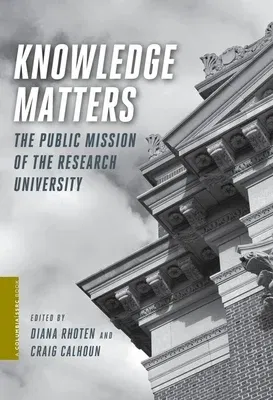Knowledge Matters: The Public Mission of the Research UniversityHardcover, 21 February 2011

Qty
1
Turbo
Ships in 2 - 3 days
In Stock
Free Delivery
Cash on Delivery
15 Days
Free Returns
Secure Checkout

Reading Age
Ages: 22
Grade Levels
17
Part of Series
Columbia / Ssrc Book
Print Length
560 pages
Language
English
Publisher
Columbia University Press
Date Published
21 Feb 2011
ISBN-10
0231151144
ISBN-13
9780231151146
Description
Product Details
Audience:
Ages: 22
Book Format:
Hardcover
Country of Origin:
US
Date Published:
21 February 2011
Dimensions:
23.62 x
16.26 x
4.57 cm
Educational Level:
Grade Levels: 17
Genre:
Higher Education
ISBN-10:
0231151144
ISBN-13:
9780231151146
Language:
English
Location:
New York
Pages:
560
Publisher:
Series:
Weight:
938.94 gm